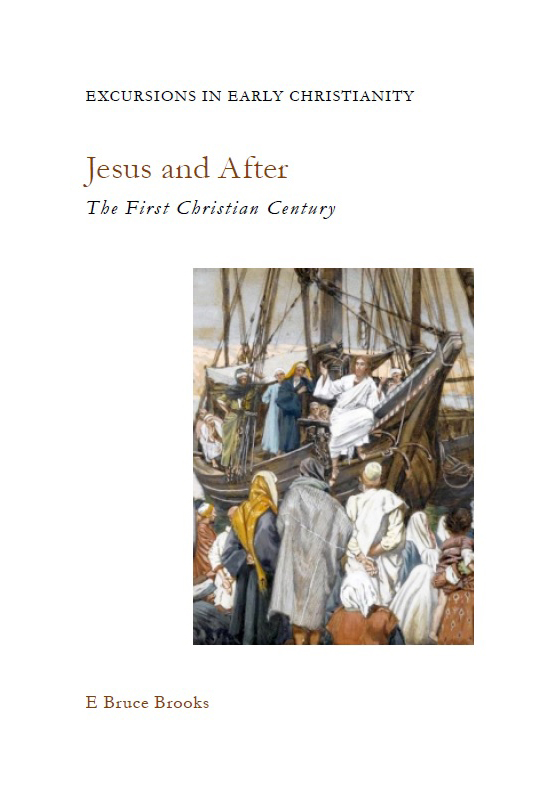Jesus and After
From Readers
From time to time, we post comments or questions about Jesus and After, to create a dialogue between the book and its readers. An Archive preserves previous comments for future consideration. Personal details are treated as confidential. Otherwise, letters are edited only for brevity; they are not changed in substance.
BEING SAVED
Reader: As I understand it, in your book Jesus and After, and also in your Bible studies [in Alpha], you teach some kind of salvation by "works," since you don't believe that Jesus is God, or that Jesus' blood on the cross somehow magically frees us from our sins. Am I correct? The question in my mind is: If you don't believe in hell, or in a devil, (and neither do I), then what are we being saved from? Why do we need to be "saved?" What is "salvation," when you don't acknowledge the atonement or the deity of Jesus Christ?
Author: Two things in this world are entirely personal: a taste for olives, and an idea about Higher Things. I don't venture to offer advice about either one. What I do do is more limited. I try to see what the texts tell us about the history of Christianity, and then I report what I find. At most, that clarifies the way some ideas appeared as Christianity evolved. It turns out the Atonement and the divinity of Jesus were late ideas, not anything Jesus himself taught. So in principle, those beliefs are only optional for modern Christians. You can not believe them, and still think of yourself as a Christian. You are merely an Earlier Christian than the people who may be sitting next to you.
I should really stop there. But your question goes further. I would put it this way: Is there an afterlife? Does that afterlife offer good and bad options? If so, how do we get on the good side?
In pretty much everyone's opinion, if there are such options, getting on the good side is a matter of having no sins. If you have sins, you need to get them forgiven. God can do that; some think Jesus's sacrificial death can do that; in certain churches a priest can do that. My problem with this scenario is that it is an all or nothing game. But good and bad in life as we know it seem more mixed. If someone cheats his business partner, and uses the money to feed the poor, which act cancels out the other? In religion, there is no 84%. But is that the only way to look at things?
Since we don't really know, one way is to just do one's best, according to one's lights, and take one's chances. As we approach our personal end, maybe a joke is as good a way as any, to show one's confidence in the good judgement of the Ultimate. Heine was a German poet, but living in France, and dying in France. His last words were in French. Someone was praying that his sins be forgiven. He said to her, reassuringly,
"Dieu me pardonnera, c'est son métier."
God will forgive me; it's his job. I sort of like that view of the place of God, in the larger scheme of things.
Archive of earlier conversations:
- The Love Commandment
- The Ethical Jesus
- Making it Known
- Ethical Choices
- The Layers of Mark
- All That Stuff
Thanks to all, for reading and sharing. To contribute a question or comment, use the link below.
Send a Question or Comment / Order Jesus and After / Exit to Publications Page

